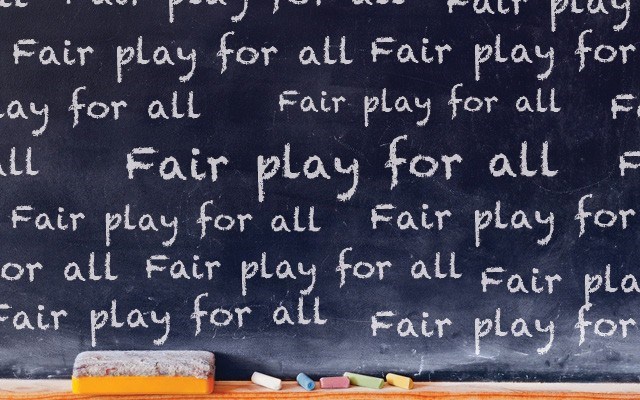Here we go again.
Teachers on one side and the government, which oversees province-wide collective bargaining, on the other... and students, once again, caught in the middle.
This on-going, fractious and often bitter battle has existed for too long now in B.C. —it is getting very tiring.
There can be no disagreement about the fact that the education of our children is of paramount importance, and in recognizing this; both sides use it as leverage for their respective positions.
Logical for the negotiators — but if the entrenched positions lead us to a strike it is the students who pay the price: The students whose applications to university are threatened, the students whose exploration of learning is thwarted. The negotiators, are all done their schooling, and have good jobs — not much risk to them personally for weeks, or even months, out of school.
And really — cancelling recess in some schools in B.C. because kids can't be supervised? How is that going to put pressure on either side? All it is going to do is make a lot of little kids pretty sad, and maybe angry with the teachers.
Let's be clear here though, there is no villain in this saga.
The BC Teachers Federation, the union representing 41,000 teachers, needs to be treated fairly. It is clear that has not been the case in the past — just think back to this February when we learned through a released court ruling that the Liberal government had a strategy to intentionally provoke a full-scale teachers' strike two years ago so that, according to the NDP, it could pass legislation related to the strike and bargaining at the same time.
Premier Christy Clark emphatically denied provoking teachers and said she disagreed with the ruling.
Over the past decade the Liberals have twice attempted to legislate the BCTF into a corner. In 2001, when the Liberals first came to power, they tried to hog-tie the teachers' right to strike through essential-services legislation. That was followed up a year later by a law taking class size, staffing levels and workload provisions out of the collective-bargaining process,
Both bills were ruled unconstitutional after a 10-year battle, the last time being struck down in B.C. Supreme Court just this past January.
The B.C. government quickly filed an appeal and won a court injunction to delay implementation of the ruling. Aside from a $2-million damage award, the province believed it could be on the hook for up to $1 billion to restore staffing and class-size levels to those of a decade ago, according to Canadian Press.
B.C. Teachers' Federation president Jim Iker says the union tabled its demands more than a year ago, asking for wage increases that include cost-of-living adjustments and salary catch-ups to other provinces — taking action is the next step. The contract demands also call for smaller class sizes and more specialist teachers.
According to the BCTF the average teacher's wage is $71,485 for their 10-month work schedule. If the wage went up 13 per cent the total cost would be $381 million — that's about a seven per cent increase in the $5.4-billion spent annually on the K-to-Grade-12 system, according to the Vancouver Sun.
The government for its part wants a 10-year contract with a total of 6.5 per cent spread out until May 1, 2019 with indexing after that. Total cost to system — $190 million.
While the 10-year deal on the face of it is attractive to many who are sick of the push-me-pull-me dysfunctional bargaining we have endured since province-wide negotiations replaced district-by-district talks in 1994, it is not a sensible solution.
Give it up and move on.
We all support teachers. Many of us have spent hours volunteering in classrooms, and for our schools, understanding how important the institution is, as well as the importance of the amazing work done by teachers and administrators.
But we are slowly coming out of a recession. Asking taxpayers to fund a $381-million-dollar expense is asking too much.
Many ordinary workers — read non-union — have had little or no pay increases for years. Many are falling behind even with the low rate of inflation.
It's not that people don't support teachers, or education, it's just tough out there right now and asking us to pay 13 per cent more is asking a lot.
There is no getting away from the fact though that this is all inextricably linked. We need to educate our youth well, so they in turn can drive the economy, and in the long run help sustain a healthy work environment for all of us.
So as we move into the next phase of this two-step let's hope the partners can move in sync and avoid stepping on each other toes — nobody wants a full blown strike in time for school in September.




